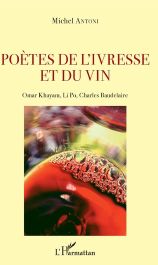Implications of Mystic Intoxication in Chinese and Iranian Poetry. R. Weston.
The Undergraduate Historical Journey, 1 (2014) 1, pp. 5-9.
In analyzing the works of Chinese Tang poet Li Bo (701-762),1 one notices the reoccurring reference to “drunkenness” or drinking of wine; though it can be taken at face value to represent a state of being in the literal sense—that is, what appears to be an intoxicated stupor—it seems more practical to consider a more figurative meaning. Namely, it is possible to interpret themes of wine and drunkenness as allegories for spiritual enlightenment, be it found in nature or simply life in general.
